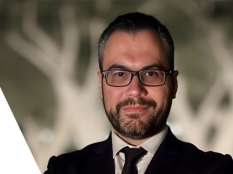
Lean Construction Management Postgraduate Programme
POSTGRADUATE CERTIFICATE
Lean Construction Success: Optimise, Lead & Succeed
Ready to revolutionise your approach to construction management? Lean methodologies are transforming the industry, and now you can lead that change.
The global lean construction market is expected to grow at a 13.3% CAGR from 2021 to 2028, as more companies embrace Lean project management practices to enhance efficiency and reduce waste. Our Lean Construction Programme equips you with the skills to not only adapt but also drive transformation.
This 4-month Lean project management course combines Lean Construction and Lean Startup principles, offering you efficient construction project management techniques and a strategic business vision. You'll learn how to optimise every phase of your projects, minimise waste, and achieve sustainable outcomes, giving you the agility to make fast, informed decisions in the dynamic construction sector.
Whether you’re overseeing large infrastructure projects or managing smaller ventures, you’ll master Lean principles alongside Agile methods like Scrum and Kanban. Additionally, hands-on experience with tools like PowerBI and Generative AI will empower you to manage complex projects with precision, speed, and sustainability.
This Lean Construction Management course is designed for busy professionals, providing high-impact results in a short time, ensuring you stay at the forefront of industry innovation, while adopting a robust lean management system that will transform how you lead projects.
Academic content
16 ECTS
Module 1
Lean Foundations
U1 | Introduction to Lean Construction
U2 | Lean Startup
U3 | IPD (Integrated Project Delivery)
Module 2
Lean Design and Optimisation
U1 | Design Thinking
U2 | Value Stream Mapping (VSM)
Workweek
Module 3
Advanced Project Planning
U1 | Location Based Management
U2 | Last Planner System Methodology
U3 | Planning with Agile (Scrum / Kanban)
Workweek
Module 4
Visual Management, Power BI & AI
U1 | 5S and Visual Management
U2 | PowerBI for Lean Projects
U3 | Agile with Generative AI tools
Module 5
Lean Enterprise
U1 | Agile Transformation (OKR)
Workweek
FCP
Final Course Project: Hands-on Lean Construction Implementation for Real-World Impact
Put everything you've learned into action. This project is your chance to apply course concepts in a practical way, bringing theory into practice.
The ZIGURAT methodology
Active & Social Learning
Training based on participation and collaboration
Studying at ZIGURAT means expanding your professional network and having the unique opportunity to participate in selective working groups, decided on through the expertise of our professors: leaders in technological innovation and construction.
Lifelong Support
A holistic view of the professional profile
From the initial orientation to post-Master's advice, we guide you to have a critical and 360º vision of your future as an expert in the sector.
Online Experience
Interactive and flexible digital experiences
Through live sessions with industry leaders and high-quality materials on global case studies, our learning approach adapts well to the hybrid pace of today's professionals.
Admission process
Application for admission
Personal interview
Submission of documentation
Admissions Committee
Admission decision
Enrolment
Admission Request
If you wish to start the admission process, click here Admission Process.
ZIGURAT also offers financial aid plans, which 2,000 students have benefited from since we were founded. If you would like to find out more about these plans, you can do so by clicking on the link Institutional Grants.
Applications are open until the end of the available places and financial endowment of each program.
FAQ
Lean is a management philosophy that originated from Toyota's manufacturing processes, known as the Toyota Production System. Its core objective is to deliver maximum value to the customer while minimising waste. Lean focuses on streamlining processes by eliminating activities that do not add value, optimising the flow of work, and ensuring that resources are used efficiently. Lean principles emphasise continuous improvement (Kaizen), respect for people, and long-term thinking, creating a culture of accountability and adaptability. In practice, Lean encourages businesses to deliver products or services faster, with higher quality and lower costs, by removing inefficiencies at every stage.
Lean Construction Management is an approach that focuses on maximising value while minimising waste in construction processes. It draws from Lean Manufacturing principles and adapts them to the unique challenges of the construction industry. This methodology aims to improve efficiency, collaboration, and resource management throughout the project lifecycle, resulting in faster delivery times, reduced costs, and higher-quality outcomes. Lean Construction emphasises continuous improvement, transparency, and a customer-focused mindset, ensuring that each project stage adds value and avoids unnecessary delays or inefficiencies.
This programme is designed for construction professionals seeking to optimise their projects and lead strategically in an ever-changing environment. If you face inefficiencies, resource waste, and outdated processes that slow down your projects, this programme is for you.
This programme combines Lean and Agile methodologies with Lean Startup principles to provide comprehensive training in project management and strategic leadership.
Not only will you learn to optimise project management, but you will also develop a strategic business vision, essential for today’s construction leaders.
Plus, this programme is designed for busy professionals, providing high-impact results in a short time (just 4 months).
Implementing Lean Construction allows you to reduce waste, optimise processes, and deliver sustainable results more quickly and efficiently. You will improve resource management, communication, and collaboration in your projects.
Block 2 focuses on the fusion of Design Thinking with Lean tools like Value Stream Mapping and the Last Planner System. Agile planning methodologies such as Scrum and Kanban are explored to promote flexibility and efficiency in executing sustainable projects.
Block 3 centres on the integration of tools like visual management, PowerBI analytics, and generative AI to enhance project execution and performance tracking. You’ll be guided in the application of Agile transformation methodologies, such as OKRs, to maintain continuous improvement and foster Lean Enterprise principles.






